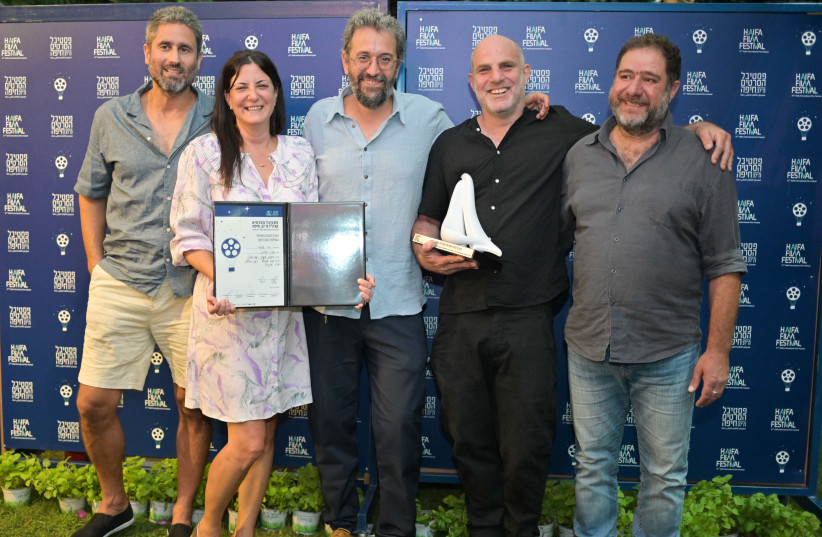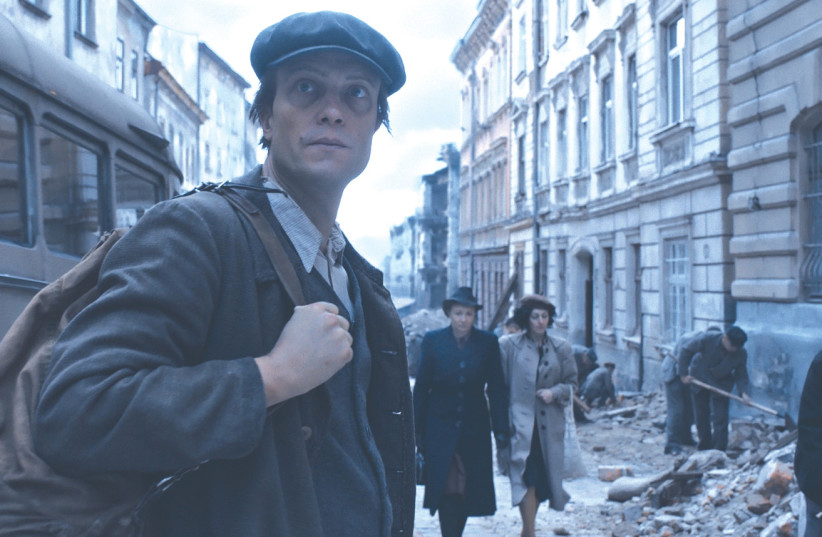The Israeli competitions for feature films and documentaries at the 37th Haifa International Festival, which runs until September 28, presented a strong slate of movies.
The Feature Film category is closely watched at Haifa and a number of movies that have won it in past years have gone on to do well at the Ophir Awards, the prizes of the Israel Academy of Film and Television. The Ophir Award ceremony will take place in October this year and the two movies with the most nominations were both shown at Haifa: Avi Nesher’s Image of Victory, which was screened out of the competition, and Eran Kolirin’s Let It Be Morning, which took part in the competition.
Due to the fact that the festival runs during a holiday, I was not able to see all the Israeli movies, but I did catch Let It Be Morning. Kolirin’s 2007 movie, The Band’s Visit, was a moving, crowd-pleasing story about an Egyptian orchestra that gets lost in a Negev town and the connections the musicians make with the locals, which was eventually turned into a Tony-Award-winning Broadway musical. Kolirin’s subsequent movies have not worked nearly as well, but Let It Be Morning, which had its world premiere at Cannes this year, is definitely his strongest film since The Band’s Visit. Although the Arab cast members refused to attend the Cannes premiere as a protest directed at the Israeli government, they did come to Haifa for the opening night.

A pointed commentary on the political situation, based on a novel by Sayed Kashua, Let It Be Morning works as a drama and black comedy because the characters are so well-drawn and appealing. Alex Bakri plays Sami, a hi-tech executive who lives in Jerusalem and feels like he has it made, with a beautiful family and a mistress as well. But as Sami visits the village where he grew up to attend a family wedding, the army suddenly seals off the area, because they are looking for Palestinians hiding there illegally, including a father and son building a second home for Sami, that he does not really want. His life quickly starts to fall apart as his wife, Mina (Juna Suleiman) confronts him and lets him know that she is aware of his affair, and he begins to worry that his job is not as secure as he had thought it was.
THE PERFORMANCES are wonderful, particularly Suleiman, who is so sexy and wise you want to shake Sami for cheating on her. Much of the movie is about the divisions among the Arabs, not only the Palestinians and the Israeli Arab citizens, but also those who are politically conservative and believe in working within the system, like one of Sami’s brothers, and those who are ready to rebel. It also highlights the problem — which, sadly, is in the news almost daily — of crime in Arab areas. The film plays like a snapshot that depicts all that ails Arabs in Israel, and while much of the movie is interesting, some of the plot twists feel as if they are there to make a point rather than to tell a story. Let It Be Morning will be opening in theaters later this year.
The other Israeli movies in competition at Haifa were an incredibly diverse selection. Marat Parkhomovsky’s Tel Aviv is about a young couple whose world is shaken up by an unexpected event that forces them to make some tough choices; Doron and Yoav Paz’s Plan A is a fact-based English language movie, starring Michael Aloni (Shtisel), about young Holocaust survivors, among them poet Abba Kovner, who planned to poison the German water system in 1945; Amir Manor’s The House on Fin Street, about a naive young woman who is pressured into becoming a prostitute; and Roy Krispel’s Abu Omar, the story of a father’s quest to return to his West Bank village to bury his young son.

In the Israeli Documentary section, among the standouts was Bobby Lax’s Back in Berlin, which tells how the British director finds a suitcase after his father’s death filled with letters from family members who were killed in the Holocaust. Lax gives them to a childhood friend from Germany to translate and learns that the friend had a great uncle, Veit Harlan, who directed Jew Süss, one of the most infamous antisemitic propaganda films commissioned by the Nazis during World War II. Together they travel to Berlin together to delve further into their family stories and end up seeing Jew Süss, access to which is strictly limited by the German government. It’s an unusual story of two friends who have very different Holocaust stories in their backgrounds that they are drawn to investigate.
Between Walls, by the actors Rotem Zisman Cohen and Moris Cohen, follows Platoon C, a division of the Border Police that patrols the Old City of Jerusalem, and it is a fascinating look at the challenges that these police officers face. The staff of this unit includes Jews, Muslims and Christians, who must work together to try to keep the peace in one of the most volatile spots on earth.
The documentary shows how they work on several holidays during which tensions run especially high in this section of the city. There is an expression, “The policeman’s lot is not a happy one,” and this police have to face an extraordinary set of challenges and are constantly defusing tense situations, trying to stop trouble before it gets out of hand. These young officers are thrown into the middle of ancient conflicts and have to mediate between all kinds of factions, such as Egyptian and Ethiopian Coptic Christians. While the Border Police often come in for criticism, Between Walls shows what an impossible job they have.
These two documentaries will be shown on Hot’s Channel 8.
